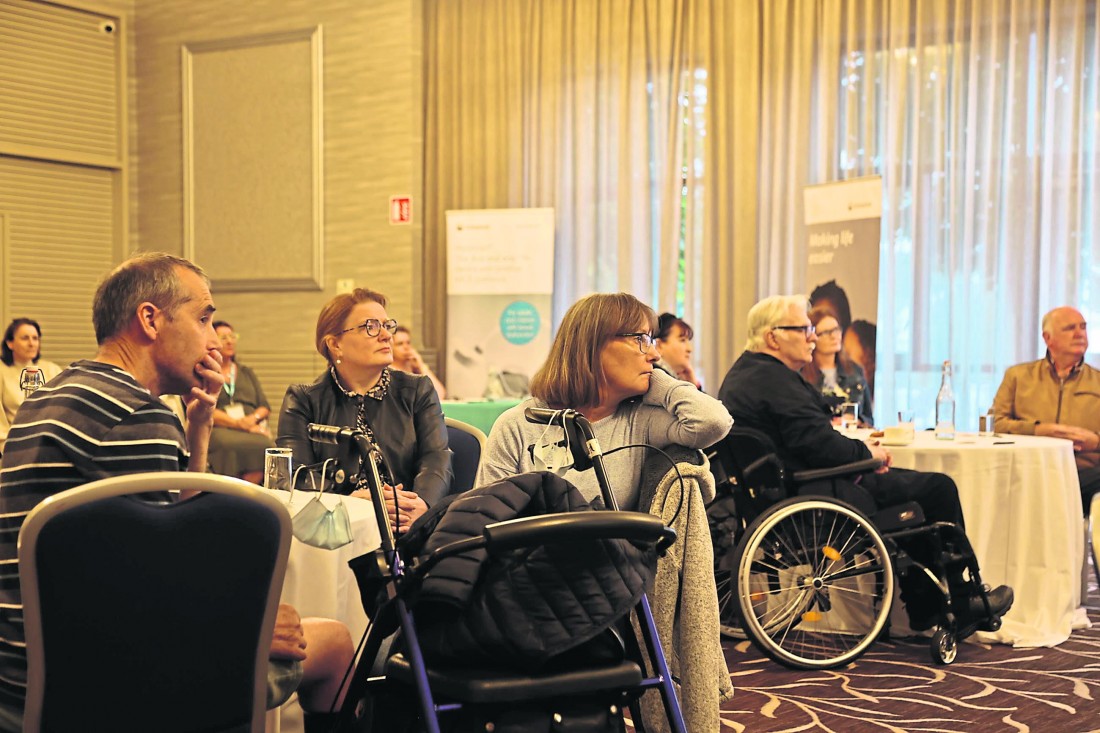A WOMAN whose daughter sustained a spinal cord injury in a car collision when she was just four-years-old has told a public meeting in Letterkenny how they faced the life-changing ordeal.
Sonia McGarvey’s daughter, Noirin has been living with a spinal cord injury for 14 years.
She was a back seat passenger in a head-on car collision when she was just a child.
The Gaoth Dobhair woman told her story in the Radisson Blu Hotel on Tuesday night last at an event organised by Spinal Injuries Ireland.
The organisation published a Pre-Budget Submission, calling on the Government to designate Spinal Cord Injury (SCI) as a long-term and permanent condition, and to extend eligibility for the medical card to anyone with a SCI on a permanent basis. Spinal Injuries Ireland said it is estimated that 25 per cent of those with a spinal cord injury live below the poverty line.
“We have been on a huge big journey and have learned a lot along the way,” said Sonia.
An occupational therapist, Sonia told of how she had some experience working with people with spinal injuries, but primarily brain injuries.
“The majority of my learning has been since Noirin has had her injury.
Following Noirin’s accident, she was treated in the Royal Victoria Hospital before going to England for further treatment.
“The driver in question put their hands up and admitted 100 per cent liability and, with the insurance, we got her into a hospital in England.
It was a one stop shop where she got all the treatment and care she needed. She was there for four months.”
Sonia told of how she was advised her daughter would needed surgery to cut her spinal cord further up from where her injury was because she was developing pins and needles and doctors were becoming concerned.
Unsure of this, Sonia sought a second opinion and found a hospital in Philadelphia which offered free care to children with spinal cord injuries.
“As it turned out, she didn’t need that surgery, and we were very glad but it was the process of trying to get there that was difficult.”
Sonia admitted she didn’t reach out to anyone and urged others not to face the same journey on their own.
“I caused myself a huge amount of angst and I stopped being mum to my son who was two years younger. I was still there in person and doing day-to-day things but I was researching. I was a doctor, nurse, occupational therapist.
“If there is anything anyone gets from this it is that there is no point running yourself into that lonely journey. It doesn’t help in the long-run and it is worthwhile reaching out to people who are available. Don’t be afraid to ask, to challenge and seek a second opinion.”
Sonia is an occupational therapist with No Barriers Foundation in Letterkenny.
She said her daughter successfully went on the college route and said she enjoys many outdoor challenges, including kayaking with adaptive supports.
Spinal Injuries Ireland has pointed out how anyone who sustains a spinal cord injury and who is in need of a medical card is currently assessed on their means rather than their needs.
The maximum period for a medical card is just three years.
CEO of Spinal Injuries Ireland, Fiona Bolger said this is “inhumane”.
“This is an arbitrary and inhumane approach which is delaying or denying treatment and the supply of necessary equipment to many people living with a Spinal Cord Injury.”
“It also contributes to significant stress, financial hardship, erosion of personal dignity and independence and additional physical and mental challenges. It is inhumane and it must change.”
The experience is life-changing for individuals and their families who are suddenly faced with the cost of medical care, bowel and bladder care and pressure relieving equipment along with specialist requirements such as a motorised chair, a bed hoist and adaptations to their car and home.
“Our number one priority is the permanent provision of medical cards based on assessment of need.
It is critical to recognise that anyone living with such a life-long condition is also at risk of developing secondary conditions that can be debilitating and even life-threatening,” said Ms. Bolger.
“In many cases people with a spinal cord injury are unable to return to their former employment. Spouses, family members or partners commonly give up their employment to provide them with home care.
“There is a huge loss of family income and it is estimated that 25 per cent of those with a spinal cord injury live below the poverty line.”










